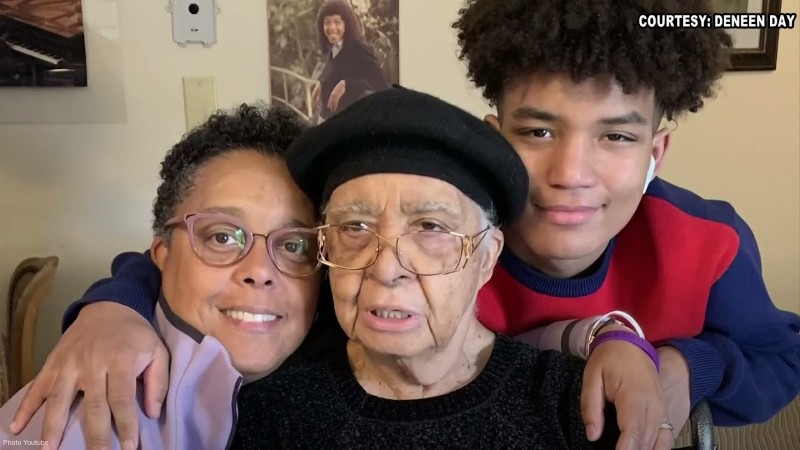In 1993, Deneen Day found herself at a crossroads that would define her future. Her grandmother, Odessa, was discovered in deteriorating health by Meals on Wheels volunteers, struggling with the effects of Alzheimer’s disease. With little preparation and few resources, Day stepped up as her primary caregiver, determined to provide the care her grandmother needed.
Despite support from her mother, Tillie, Odessa’s condition worsened, leading to episodes of aggression that left the family emotionally drained. Day found herself navigating the complex world of Medicaid, nursing homes, and caregiving strategies with little outside help. She reached out to the Alzheimer’s Association but often felt like an outsider due to her identity as an LGBTQ+ Black woman.
After two years of dedicated care, Odessa passed away in 1995, giving Day a brief respite from caregiving. However, the experience planted the seeds of a mission that would shape the rest of her life.
Key Takeaways
Deneen Day’s journey as a caregiver for her grandmother and mother with Alzheimer’s disease highlights the unique struggles faced by Black LGBTQ+ caregivers and her subsequent advocacy for inclusivity in Alzheimer’s care.
- Day experienced significant challenges, including discrimination and lack of resources, while caring for her grandmother and mother with Alzheimer’s.
- She became an advocate for greater diversity in Alzheimer’s care and research, emphasizing the importance of representation in clinical trials.
- Through her work, Day continues to push for more inclusive support networks and better resources for diverse communities facing Alzheimer’s.
A second chapter in caregiving
Day’s caregiving journey was far from over. Years later, she faced another devastating diagnosis—her mother, Tillie, had developed Alzheimer’s as well. This time, she wasn’t alone. Her son, Kendall, played a vital role in supporting his grandmother, displaying a natural ability to connect with her, likely influenced by his own neurodivergent traits.
For six years, Day balanced the challenges of caring for both her mother and son. The experience was overwhelming, but Kendall’s presence made a difference, providing both emotional support and practical assistance.
In 2014, Tillie suffered a serious fall, forcing Day to make difficult decisions about long-term care. The search for an appropriate facility was complicated by the discrimination she faced as a lesbian woman. Many institutions failed to provide a welcoming environment, making an already painful process even more difficult.
Despite these barriers, Day remained steadfast in her commitment to ensuring her mother received the care she deserved. She persisted in finding a facility that met Tillie’s needs, advocating for the dignity of all families facing similar struggles.
Fighting for inclusivity in Alzheimer’s care
Through years of caregiving, Day witnessed the gaps in representation for both Black and LGBTQ+ caregivers. While organizations like the Alzheimer’s Association provided resources, there was often a lack of understanding of the unique challenges faced by marginalized communities.
Determined to change that, Day became an advocate, pushing for greater diversity in Alzheimer’s care and research. She encouraged Black Americans to participate in clinical trials, highlighting the importance of representation in developing better treatments for the disease. With statistics showing that only 35% of African Americans express concern about Alzheimer’s, she works to spread awareness about the importance of early detection and participation in medical studies.
Day has received numerous awards for her work, yet she continues to see gaps that need to be filled. While progress has been made, she believes that more work is necessary to ensure that all caregivers—regardless of race, gender, or sexual orientation—have access to the support they need.
Continuing the mission
Day’s advocacy has only grown stronger in recent years. After her uncle passed away in 2023 and Kendall left for university, she remained deeply committed to helping caregivers navigate the complexities of Alzheimer’s care. She emphasizes the importance of preparing legal documents in advance, ensuring families are not caught off guard when emergencies arise.
She continues to push for inclusivity in Alzheimer’s support networks, working with organizations to develop better resources for diverse communities. Her efforts focus on creating environments where caregivers feel acknowledged and supported, regardless of their background.
For those facing similar challenges, Day urges them to seek help and build a support system. Through her dedication, Day has ensured that caregivers from all walks of life feel seen and heard. Her work serves as a reminder that no one should have to face the challenges of Alzheimer’s alone. By fostering an inclusive and compassionate caregiving community, she continues to pave the way for future generations.















